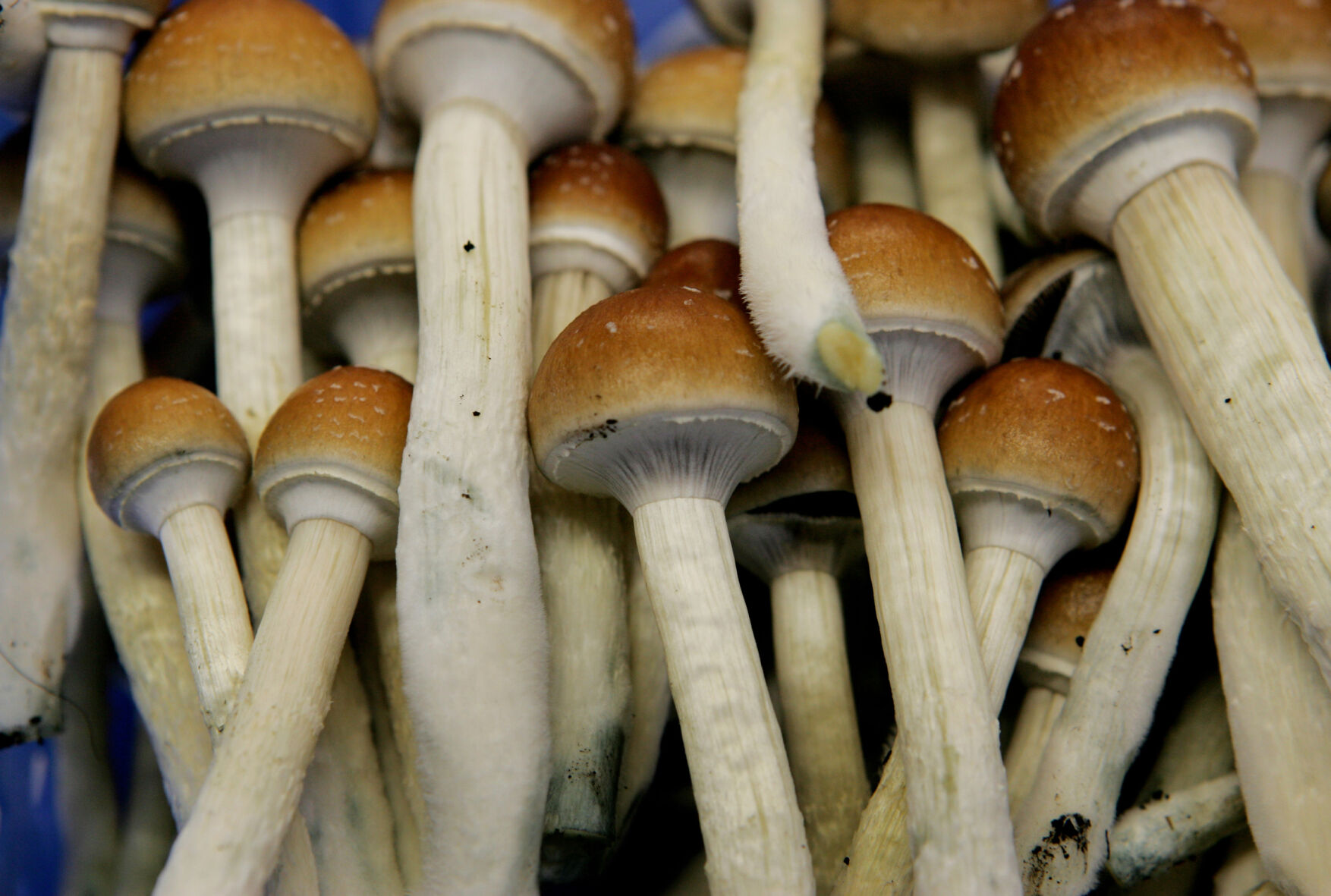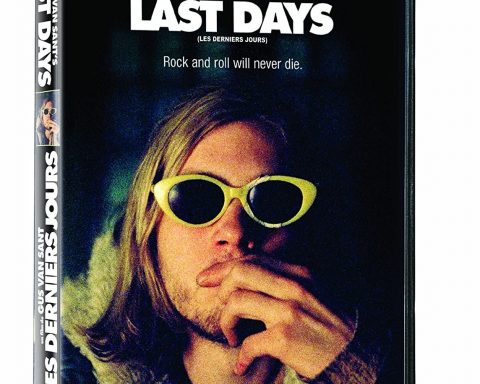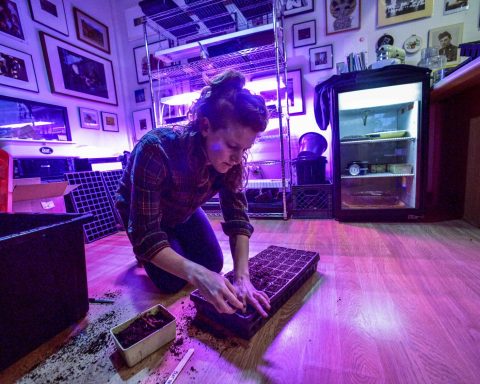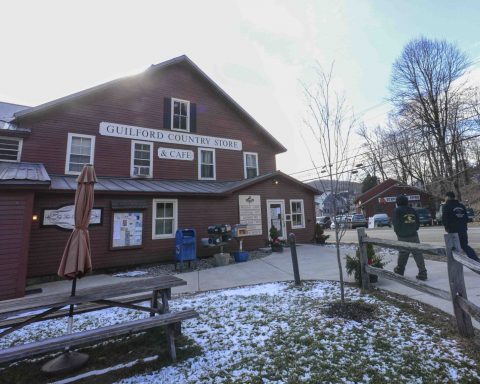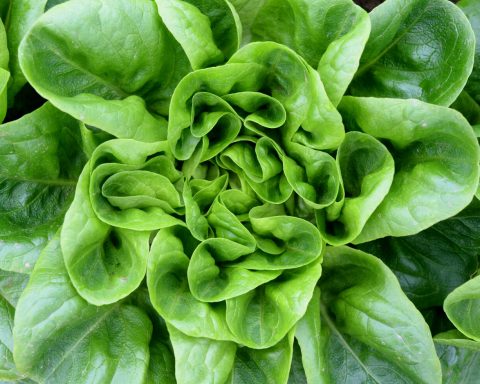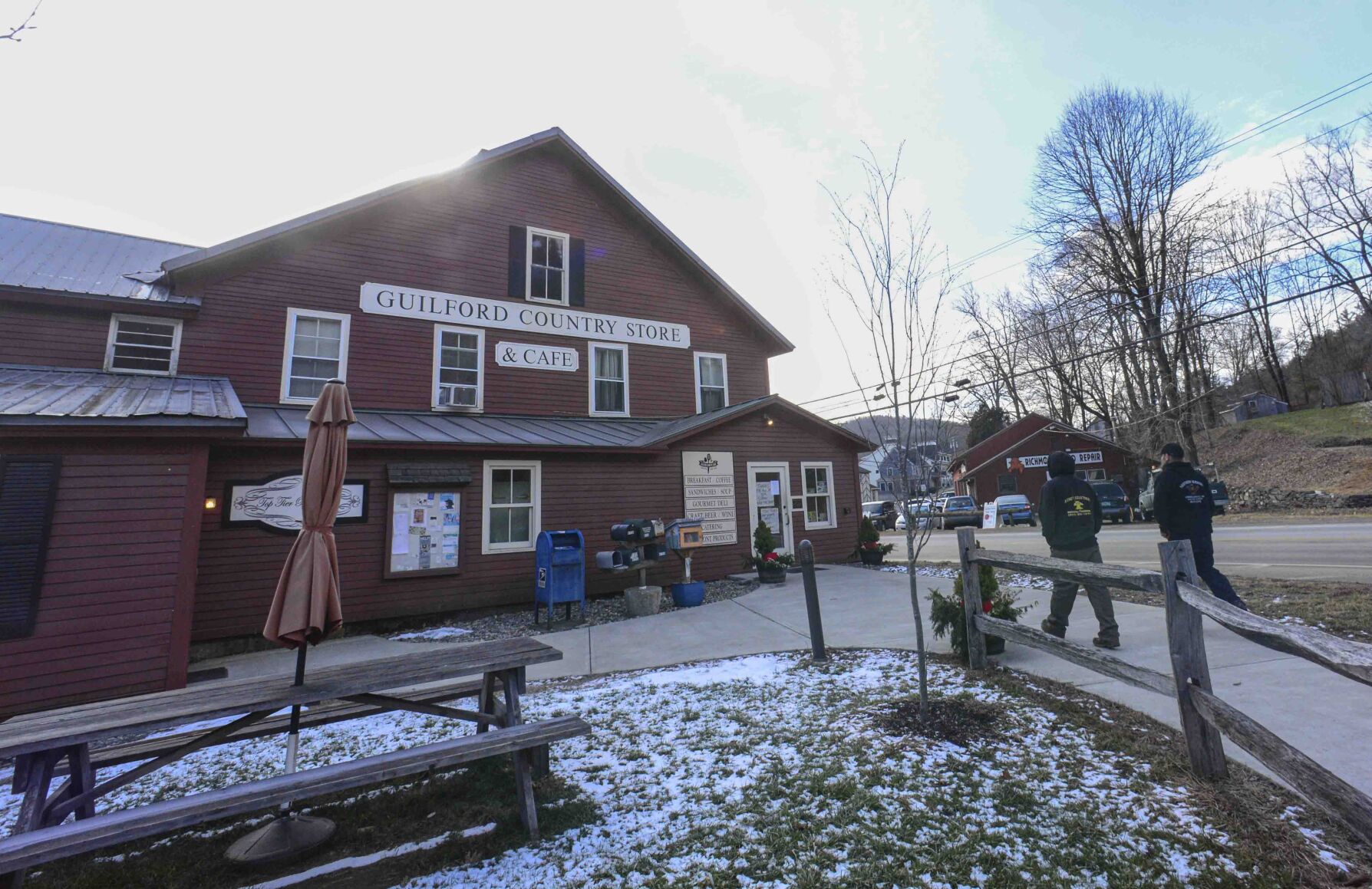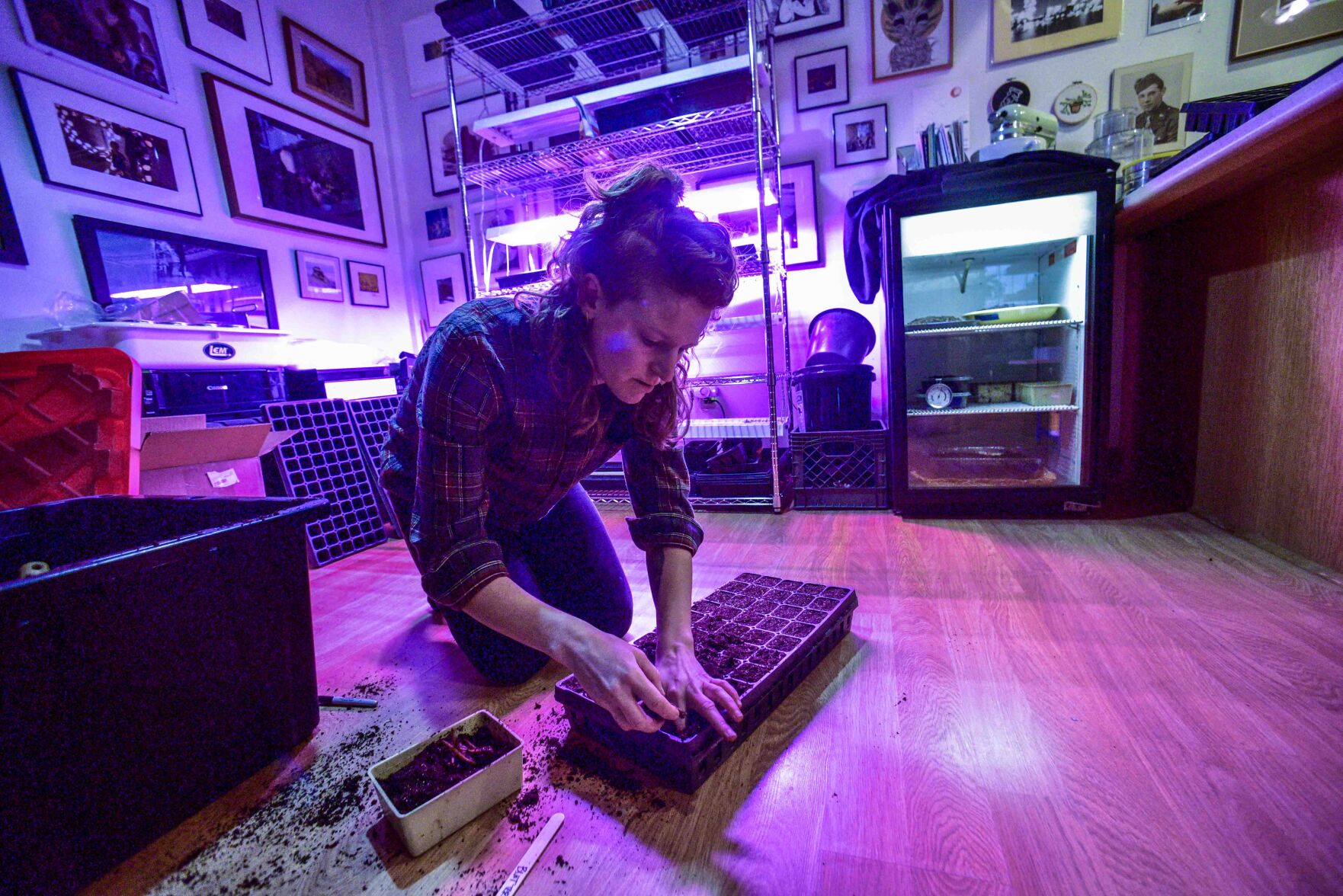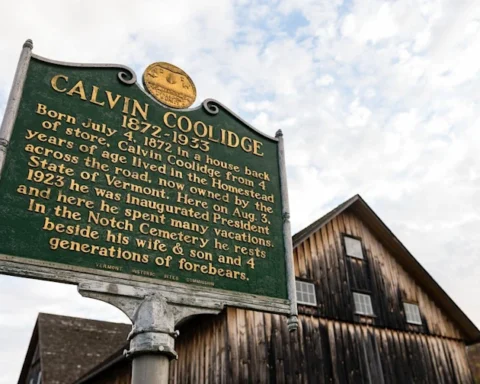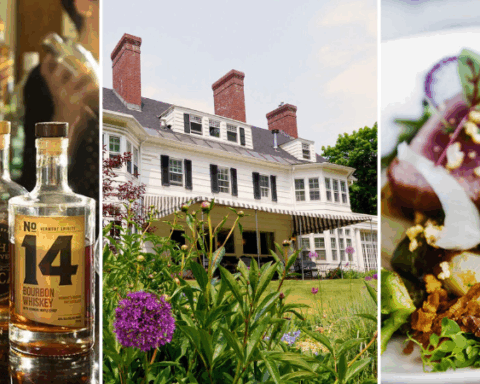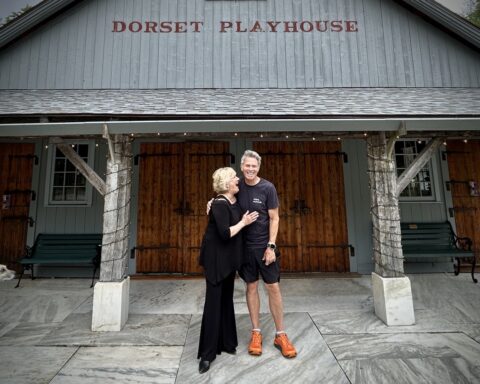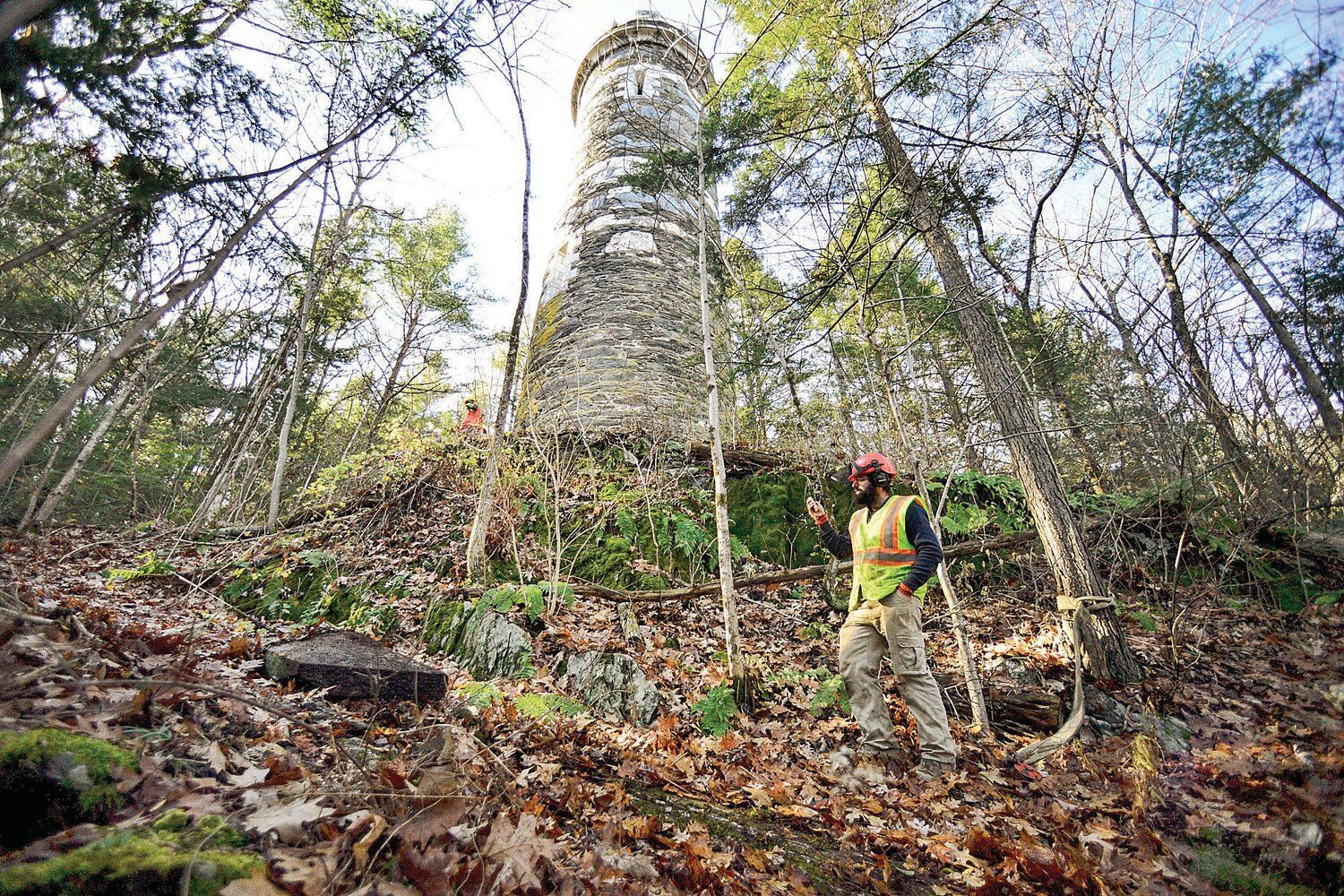By Kathleen Hawes, Vermont Country correspondent
Editor’s note: Because of a production error, a draft version of this story ran in a past issue of the former UpCountry magazine. Below is the updated version.
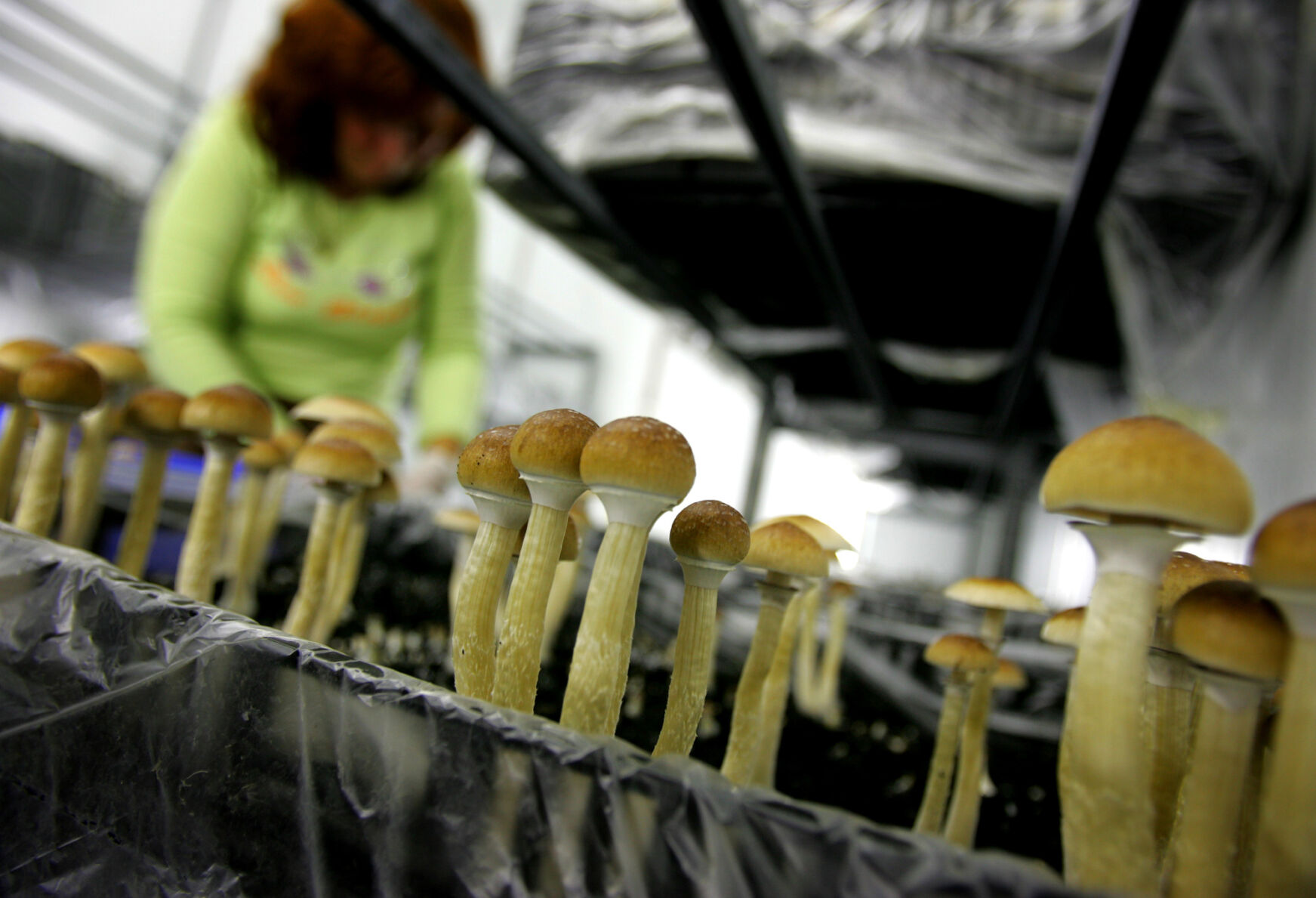
STRIKE ONE
At a quaint New England farmers market nestled in the Green Mountains of Vermont, I tried to score some illicit drugs. Fiddle music played as barefoot kids romped through wildflowers. Chalkboard signs advertised raw milk cheese, hand-packed gelato, paraben-free bars of soap. With the mask mandate recently lifted, woodsmoke and pine needles never smelled more divine.
I loitered near a booth set with a dozen cardboard pints filled with soft brown ovals of local fungi. After inspecting the chalkboard for a long time, I tried to act casual. “Which one is the lion’s mane?”
The lady behind the table thumbed the straps of her overalls and looked apologetic. They had sold out of everything, save the blue oysters. It was a shame, too, she said, because lion’s mane was not only delicious cooked up on steak, but “excellent for improving brain activity.”
This was my opening: “What about the other kind of mushroom? I’ve heard those are also good for your brain.” I leaned in. “You know, like, the magic kind?”
The woman’s husband, busy with a Venmo payment for the last pint of chanterelles must have overheard because he turned sharply. “We don’t know anything about those kinds of mushrooms.” His smile was tight. “Psilocybin is illegal in Vermont.”
It was strike one in my pursuit of a totally transformative experience.
A while back, a friend told me he had a magic mushroom epiphany. “I realized while I was high that I’ve suffered from social anxiety my whole life.” He was breathless over the phone. “But for those four hours, I was absolved of a weight that I didn’t even know I had. No internal monologue, no doubting myself. I never felt so free.”
Now this friend keeps a quarter-pound of dried mushrooms handy in his freezer. Three mornings a week before he shaves, puts on a tie and heads to his cush job at a multibillion-dollar software company, he pops half a stem. It’s called microdosing, and it is all the rage.
In the 1950s and ‘60s, “magic mushrooms” were closely studied by psychologists, neuroscientists and all sorts of academics in pursuit of mystical experiences. Recently, I came across a 1955 article from LIFE titled “The Magic Mushroom.” A caption reads: “A New York banker goes to Mexico’s mountains to participate in age-old rituals of Indians who chew strange growths that produce visions.” The article details two nights where the author, R. Gordon Wasson, trips his face off with some locals. The story is cringey for all sorts of modern reasons: othering, cultural voyeurism and appropriation, to name a few. Still, Wasson shows not just an open curiosity for psychedelic mushrooms, but a profound reverence, often referring to them as “the divine mushroom.” He includes a collection of delicate drawings that depict various mushroom species, one of which caught my eye: a pale, wispy stemmed toadstool that grows in volcanic grass. The name of the mushroom below the picture was translated from Aztec: “Children of the Waters.”
Then, late in the ‘60s, hippies ruined everything. Bad trips, mostly on LSD, resulted in big scares. Research on psychedelics became very uncool, thus, underfunded. In the 1970s, most psychedelics were criminalized.
But today, many Americans think these laws are antiquated. Stigma that once hovered around marijuana is old news. The catastrophe of the War on Drugs, a campaign that disproportionately affected people of color, has brought new awareness to the challenges that come with classifying certain drugs as addictive or more dangerous than others.
Anyway, it’s clear the social deviance once assigned to psychedelics is on its way out for other reasons. Coined by The New York Times as the “new Prozac,” psilocybin has been at the center of several medical studies, including one backed by $17 million at Johns Hopkins, that claim the drug can be used to treat PTSD, severe anxiety, depression and even addiction. Oregon is now the first state to legalize psilocybin for therapeutic use, and a handful of other states have similar legislation on the table. The drug has been decriminalized in Washington, D.C., Oakland, Calif., and Denver. Some officials speculate that, in the very near future, magic mushrooms will be approved for therapeutic use by the FDA.
So, what’s taken the purportedly left-leaning state of Vermont so long to catch up? Surely, the Green Mountains are not exempt from real-world problems like addiction and mental illness. Winters here are long, and isolation is real. Seven months into the COVID-19 pandemic, state officials reported alcohol sales in Vermont were up 10 percent, despite that bars and restaurants had closed their doors. Across the state, the number of people in mental health crises doubled from the previous year. The more distressing elephant in the room: the opioid problem. Opioid-related deaths in Vermont went up 38 percent over the course of 2020. Could it be that methadone and suboxone, drugs used to treat opioid and heroin addiction, just aren’t cutting it?
Still, if one is looking for alternative options, know that to get caught with mushrooms in Vermont could mean a felony conviction.
Of course, there’s nothing wrong with window shopping.
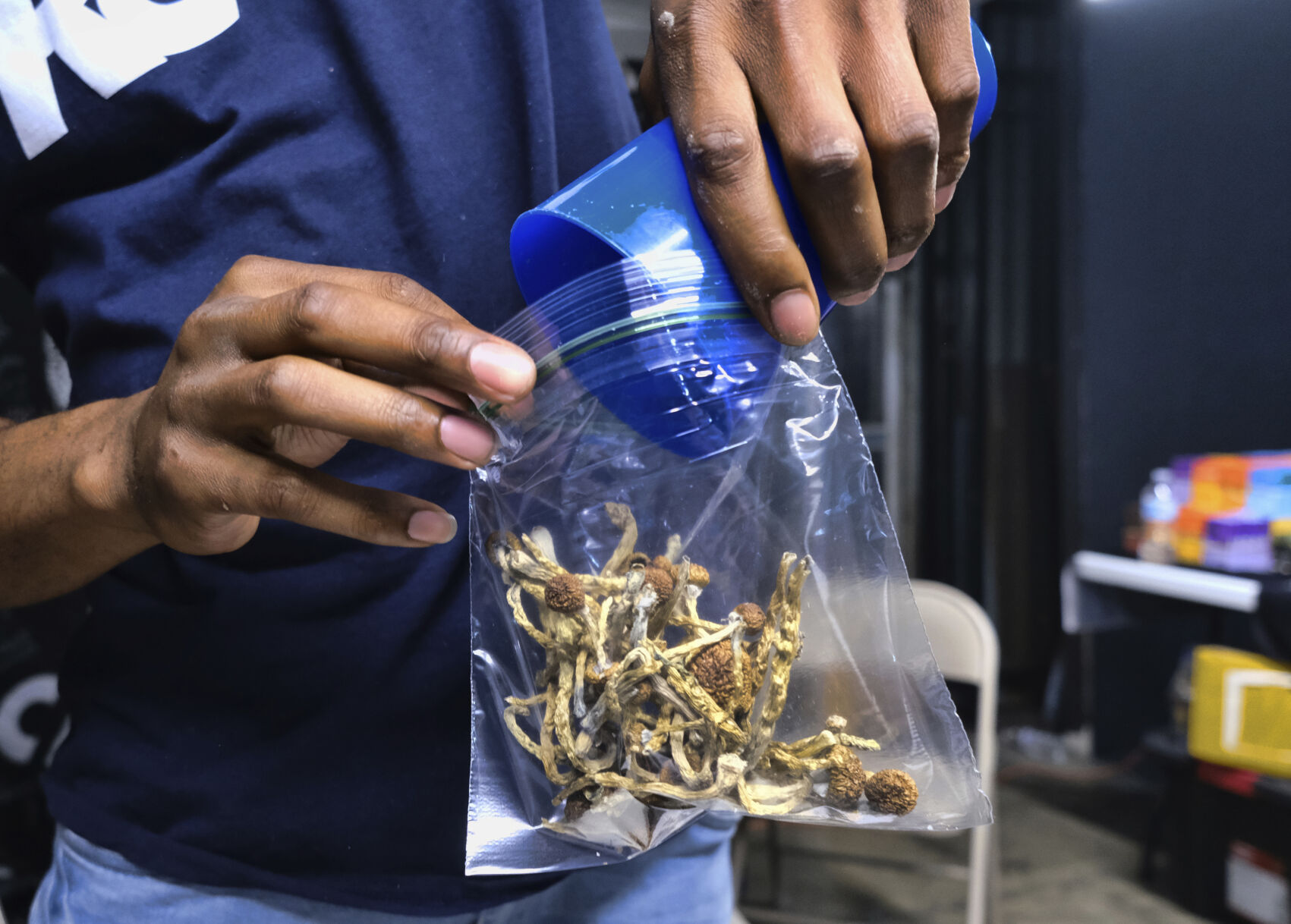
STRIKE TWO
Happy Mushrooms for Sad People is the tagline for Curative Mushrooms, a health and wellness website that offers “A Free Spore Syringe with Three All in One Grow Bags Delivered Right to Your Door.” On its Facebook page, I find tutorials for the beginner grower: Live Q&As that answer things like, “How do I tell when my grow bag is too dry?” as well as pertinent info on the federal law loophole that makes this whole business legal.
How do they get away with it? I am instructed to first purchase the grow bags, each filled with a layer cake of rye grain and fungal-dominant compost. After that, I have to click on a coupon code below to redeem my free spore syringe. The syringe kind of looks like a turkey baster filled with pee. Technically, it does not contain psilocybin, which is the compound classified by the federal government as a Schedule 1 controlled substance. My grow bags will arrive at my door separately (and discreetly) from the spore syringe. The magic won’t happen till I inject the spores into the syringe portals of the bags, wait three to five weeks for some healthy mycelium to colonize, and … voila!
However, after much research, I soon realize it’s harder than all that. Temperature, light and humidity are make-or-break factors in mycelium success. There is also expensive equipment I’ll have to purchase. Since I am broke and own only a few withering houseplants, I conclude DIY is not my thing.
Not to worry. Rick Doblin says his organization will soon safely and legally administer happy mushrooms to sad people all over the world. Rick, founder and executive director of Multidisciplinary Association for Psychedelic Studies, is wispy-haired with kind eyes, and maybe a touch of social anxiety himself. While I watch his TED Talk on my laptop, there are awkward pauses in his speech that make it hard to tell whether he’s terrified of public speaking or just burnt out from his own supply. Doblin has researched psychedelics since the 1980s, and explains that, unlike psychiatric drugs that must be administered daily and that only treat symptoms of illness such as addiction, depression and PTSD, just a few doses of psilocybin will treat the root problem. He also claims the profound experiences people have on psilocybin could be “an antidote to tribalism, fundamentalism and genocide.”
How shall these mystical mushrooms rid the world of misery and evil? Basically, by making you nicer.
Here’s how it works: The default network of your brain, in particular, a thin sheet of neurons called the claustrum buried in your neocortex, is believed to be responsible for consciousness and awareness; essentially, your ego. It filters information according to your priorities and personal needs. But, pop some ‘shrooms, and activity in that default network decreases. Your ego leaves the foreground, and takes a back seat. This is important because the exit of the ego allows you to see your customary perception of the world as just “part of a larger field of awareness.” Doblin analogizes the invention of the telescope; Copernicus and Galileo’s discovery that, in fact, the earth was not the center of the universe. This awareness-shift creates a sense of connectivity to the larger world that can result in feelings of altruism and might even relieve fear of death.
Seems plausible. There are several medical studies, some of which date back to the ‘60s, where similar feelings of connectivity were reported by control groups after the ingestion of psilocybin.
Doblin hits his stride near the end of the TED Talk. The audience hoots approval when he announces folks at MAPS anticipate thousands of psychedelic clinics will open over the next few decades. That his specially trained MAPS therapists will soon administer MDMA, ketamine and psilocybin to people in search of personal growth, couples’ therapy, or mystical and spiritual experiences.
But if a few decades seems too long to wait — if I really want to get my hands on some mushrooms now — there’s always Jamaica (the island, not the town).
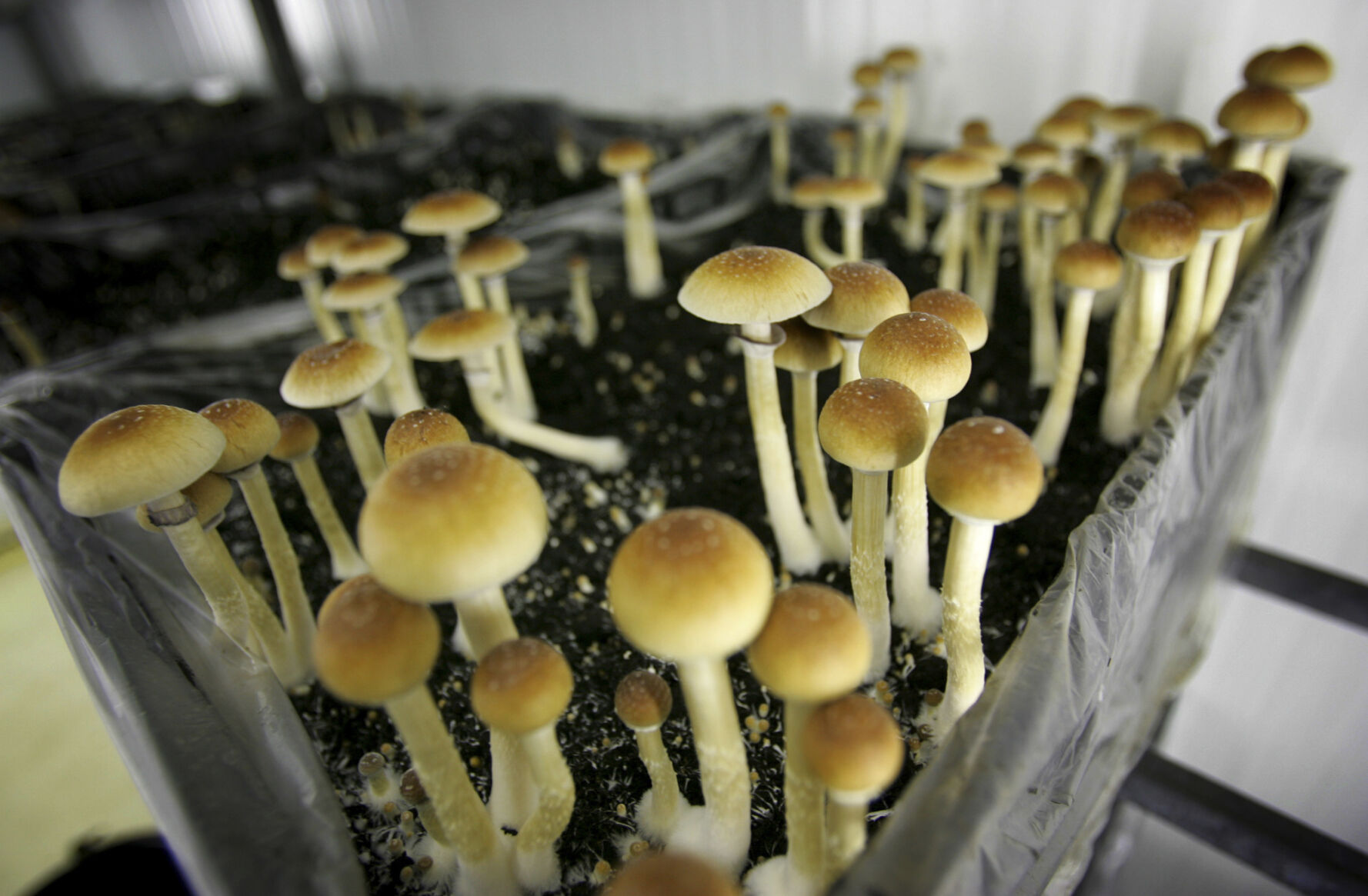
STRIKE THREE
You know how it goes when you want to plan a psychedelic getaway. First, you figure out the basics: Beach or mountains? Adventure or relaxation? Psilocybin or ketamine? If you are a mushroom gal, MycoMeditations will intrigue. The website claims to bring “another level of relaxation and restoration to your psilocybin experience.” The most luxurious retreat option boasts glittering villas on the sugar white sand of Bluefields Bay. Included with my villa will be daily laundry service and my very own butler. Over the week, I will receive three doses of psilocybin; ground up, blended and encapsulated in .5-gram increments. Dosages will increase each time and are determined by body weight, personality type and one-on-one meetings with a Mycomeditations facilitator. After I spend the day unlocking repressed memories in a guided therapy session, appetizers will be served, followed by a “unique three-course meal curated by local chefs.” All of this: just $8,950 per person.
Bleyksi from Illinois gives MycoMedations five Tripadvisor emojis: “My first trip was out of this world — I felt unconditional love, even saw myself being born and my mom holding me for the first time with tears of joy. … I asked the facilitator to come over and I squeezed Justin’s hand for probably 20 minutes. … Additionally, the accommodations are comfortable. The hospitality is very nice, and some of the food was local and fresh. Oxtail! Grilled lobster tail! So yum.”
Pharmacygirl3 weighs in with only two emojis: “There is no supervision in the evenings and guests are left alone. This woman was hysterical in the ocean after dark and swam away from shore, leaving me and another guest to call to her believing she was drowning. This woman was allowed to scream and yell hysterically for several hours inside and outside the villas. At midnight I tried to reach a Myco staff member as the hysteria was frightening. No staff member at any time came to the villa to address the situation.”
Aside from the hefty MycoMeditations price tag and the whole screeching banshee on the beach thing, Jamaica is a long haul from Vermont. There are already posh clinics preparing for FDA approval of psilocybin in Los Angeles, New York, Atlanta, Houston and Chicago. Maybe it’s best to wait till a psychedelic retreat pops up on a cow path near me.
Or maybe, waiting for Big Pharma to make fungi fungible is socially negligent and allows our shameful history of colonization and ruthless capitalism to deny the little guy what should be a basic right for all humans.
That’s what progressive Democrat and state Rep. Brian Cina tells me on a phone chat. Brian loves all things Bernie, dislikes moderate Democrats who are turning Burlington into a playground for the rich, and pushes the point that drugs like psilocybin must be decriminalized in Vermont before they are legalized for medical use.
“Humans have a sacred birthright to have access to plant and fungal-based medicine, and the government shouldn’t get in the way of that.” He sounds passionate. Sure, there should be pathways for professions to administer these medicines, but that shouldn’t be the only way to get access. “It’s another way for the pharmaceutical companies to profit, and they are the ones that created the opioid problem in the first place. If these medicines are controlled by one or two companies, we run the risk of going down a pathway that shifts to oppression.”
Hard to disagree with Brian there. Hallucinogens like ayahuasca and peyote have been used in religious ceremonies for centuries. There are religious exemptions for their use, meaning, right now the DEA is not breaking up the drum circle. But what happens when these drugs become legalized commodities?
Secondly, since psilocybin has undergone a few promising studies as a treatment for opioid addiction, the prospect that the very pharmaceutical companies who helped create this epidemic might soon hold lock and key on the cure, is troublesome. After my phone call to Brian Cina, I can’t help but think of Rick Doblin’s TED Talk promise that only specially trained MAPS therapists will be able to administer psychedelic drugs.
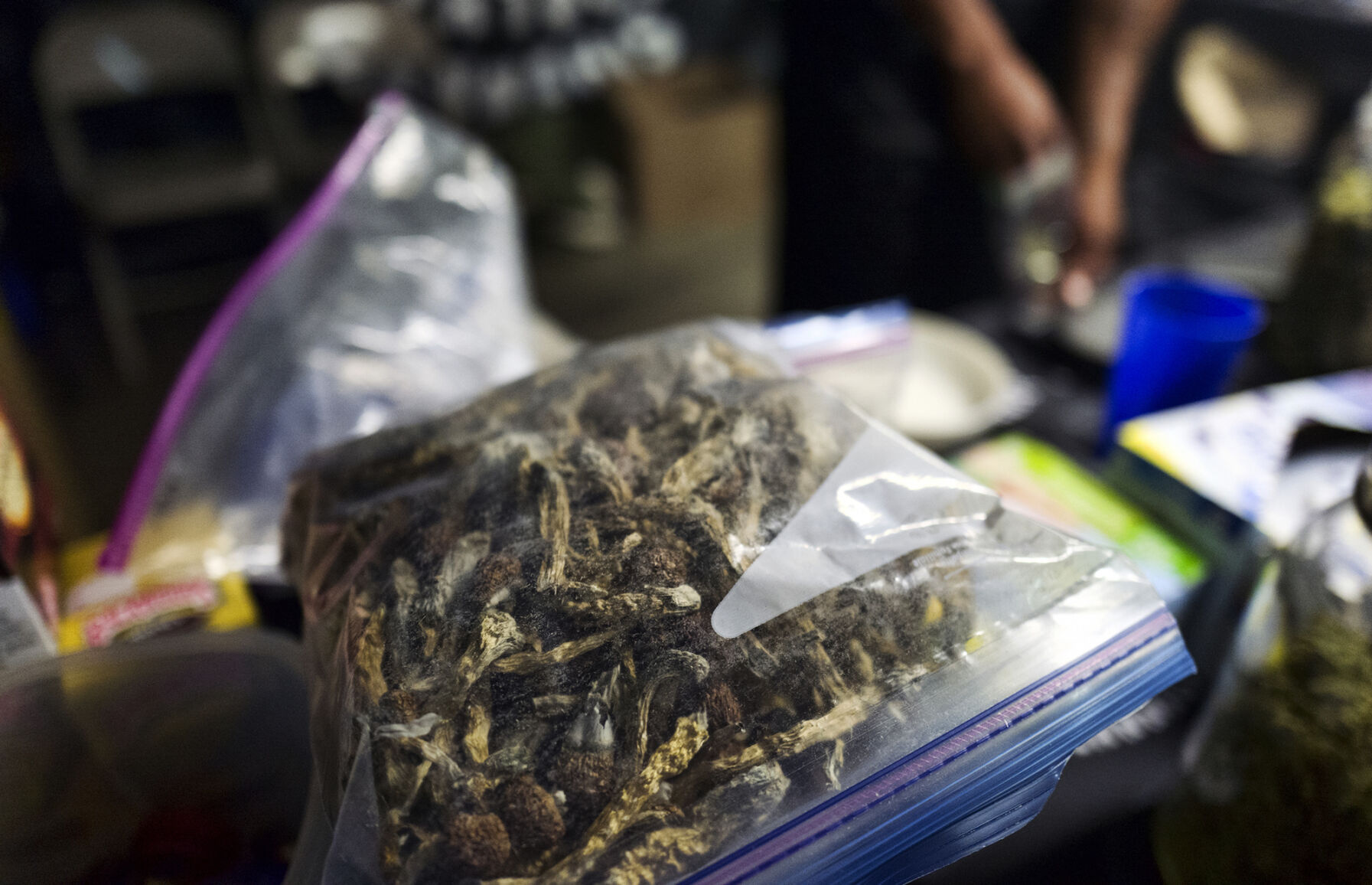
A 2-INCH HOME RUN
At great length I finally get my drugs the old-fashioned way: Instead of asking my 64-year-old neighbor for a cup of sugar, I hit her up for hallucinogens. She’s resistant, says she’s got to save her stash for a transformative couple’s weekend planned with her new boyfriend. But I push, and she feels sorry.
As I stand in her kitchen and inspect a 2-inch shriveled toadstool on the counter, VPR spouts news about a new variant. I get gloomy with the thought of another winter in isolation. Four months into the pandemic, I picked up cigarettes after three years. Sleep became rare; red wine was not. For the first time in my life, I was prescribed a psychiatric drug, bupropion, to calm my anxiety. Also, to curb the smoking — which hasn’t worked. In addition, the parallel timeline of U.S. political upheaval not only bolstered this anxiety but highlighted, for me, the suffering that arises when a monstrous ego refuses to exit the foreground.
Weirdly, political strife and a devastating virus made me more aware than ever how connected humans are — for better or worse. Everyone is swimming in the same giant pool, and if one person takes a piss, all of us drink it. Yet, as I stare down at this tiny mushroom on my neighbor’s counter, I feel some comfort in a connection: Like, maybe loneliness is just a state of mind? Maybe we are all Children of the Waters.
Kathleen Hawes is a creative writer who enjoys morning cocktails and holding grudges. You can read her work in The Sun Magazine, The Massachusetts Review, and other rando publications.
